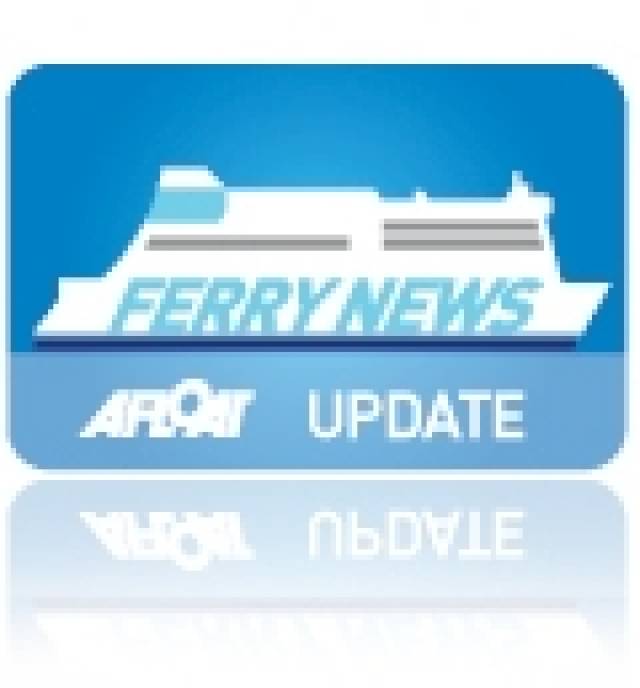#Ferryéconomie-French operator, Brittany Ferries is to launch a "économie" alternative service to existing cruise-style operated UK-France/Spain routes using a former Celtic Link Ferries ro-pax vessel, writes Jehan Ashmore.
LD Lines which in January launched the new Rosslare-St.Nazaire-Gijon landbridge service to Spain and they also operate the Portsmouth-Le Harve route served by the Visentini built ro-pax vessel, Norman Voyager. She was chartered to Celtic Link Ferries until replaced in 2011 by another ro-pax of the same design, Celtic Horizon.
The Norman Voyager will be chartered by Brittany Ferries from late March and renamed Etretat but will continue operating the French route which Brittany Ferries also launched last year. In addition, Etretat will boost capacity at weekends on Portsmouth-Santander route also served by Cap Finistere and Brittany Ferries luxurious flagship Pont-Aven (also Cork-Roscoff, season starts on 14 March)
Branding of the no-frills alternative service as Brittany Ferries économie, is designed to those wishing to travel from the UK to France or Spain at a more reasonable fare without experiencing cruiseferry style services normally associated with the operator. As previously reported on Afloat.ie, these sailings take on direct competition to new LD Lines UK-Spain routes from Poole to Santander and Gijon launched earlier this year.
The move is similar to Irish Ferries new 'economy-style' Dublin-Cherbourg service where Cartour Epsilon also operates two routes, the other been to Holyhead. The Dublin-Cherbourg route is a third route option to the established French routes from Rosslare served by cruiseferry Oscar Wilde.
The Brittany Ferries économie services are marketed also as an alternative to sailing on the company's other cruiseferry UK-Spain route to Bilbao, which as previously reported saw P&O Ferries close having chartered Irish Continental Group's Pride of Bilbao currently serving in the Baltic for St. Peter Line.
Likewise, Brittany Ferries former UK-French/Spain freight-ferry Cotentin, is also Baltic-based as she is on charter to Stena Line's Sweden-Poland service as Stena Baltica. The introduction of Etretat will make-up partially the reduced freight capacity removed from these routes.


























































